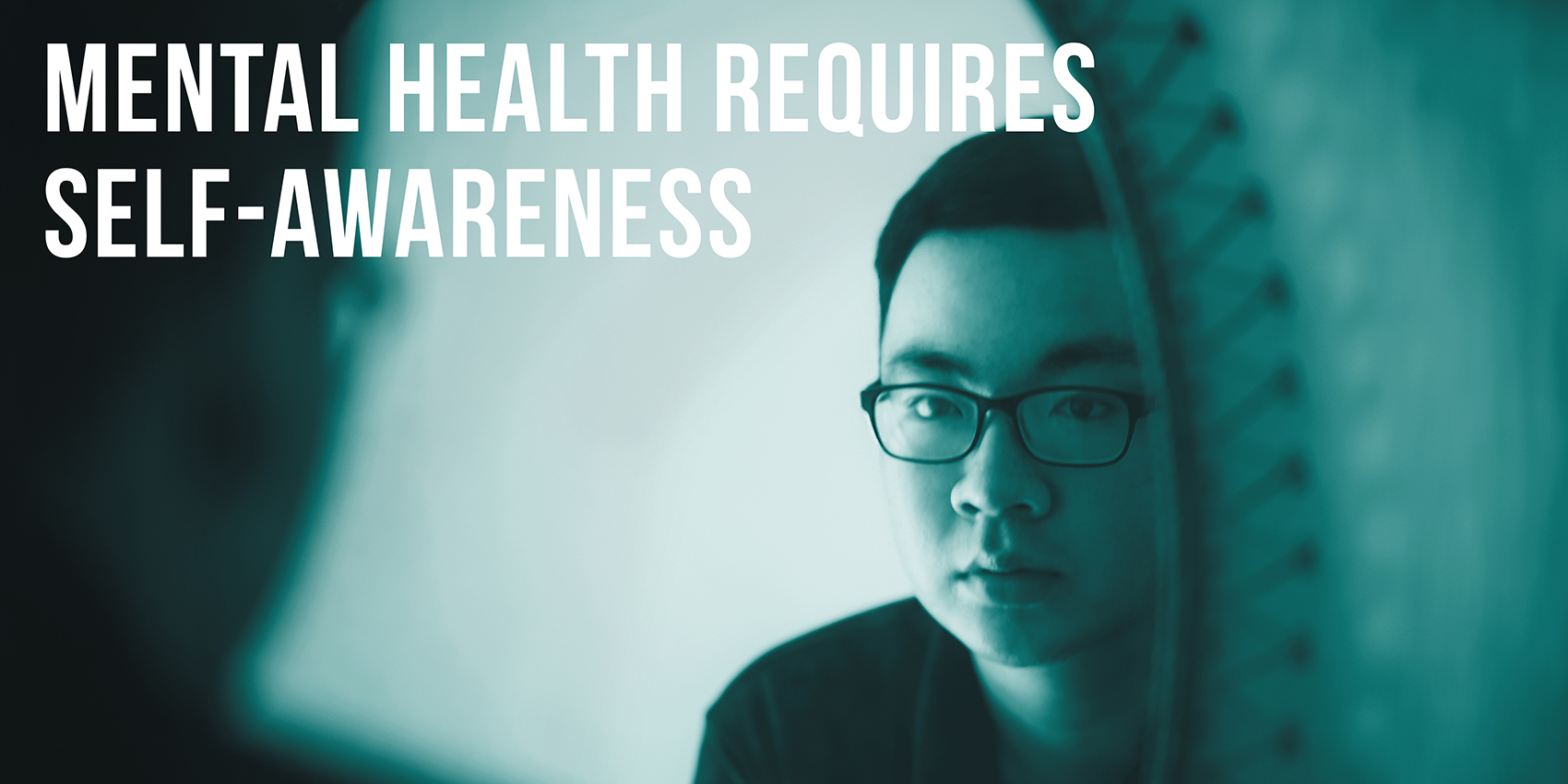23 Feb Mental health requires self awareness

You read about this idea of self-awareness a lot because it really is the first step toward being your best self.
Stephen may have been walking around in a negative fog until he sat down, quieted his mind and wrote down his most common and often-felt feelings. His list surprised him – most of the words were quite negative. He had no idea he was angry and sad most of the time until he thought about it. This awareness helped him see that with these negative feelings flooding his mind, his outlook on life was going to be negative as well. More than that, he realized if he was feeling this way, he may have been expressing it without even knowing it.
If you have not taken a moment yet to jot down your most common feelings, ask yourself why. Wondering why we don’t do something is part of self-awareness as well. You can only learn more about who you are by answering these questions, but to do so takes courage. It can be scary to look at our feelings
But when we don’t take the time to develop our self-awareness and our sense of who we are, then we might end up acting in a way that doesn’t represent who we truly want to be. Just like Stephen realized he was probably putting out negative energy and didn’t know it. His energy is going to make his experiences different from Kate’s.
Let’s say Kate and Stephen are standing in line and someone cuts in front of them. Kate and Stephen don’t know each other so this happens on different lines. Kate realizes that the cutter is rude and that the act of cutting the line really bothered her. She stands there seething with anger at the unfairness and realizes that her anger will not serve her; she reminds herself that some people are simply selfish, like the line cutter. She decides to let it go and takes five deep calming breaths to manage the emotions. After all, what can she really do about it? She’s feeling too shy to say anything and the person who cut looks really mean and scary. Better to play it safe.
But Stephen doesn’t think much about how he feels. In the moment he sends eye-daggers to the cutter and paces with hostility. He wants to punch the cutter but doesn’t only because he’s not sure if he would win. As a result, he doesn’t do anything and lets the anger simmer inside him until he gets home. His younger brother greets him at the door, anxious to play a game. Stephen, still burning up from the anger he felt at the store, pushes his brother aside roughly and tells him that his games are stupid. Stephen is angry and frustrated, and now his younger brother is confused and hurt.
Kate had awareness of her feelings about the cutter and was therefore able to manage the situation and not let it get to her. The rest of her day was normal.
Stephen had no awareness of his feelings about the cutter, couldn’t manage his reaction, and took his hostility out on the next closest person to him. The rest of his day didn’t feel good.
When we are not aware of our feelings, we are unable to manage them and often we act on them in a way that can lead to trouble and/or regret. This is what people mean when they use the term “acting out.”




Post Question:
Are you aware of your feelings? How are you feeling right now?
Answer the post question here
What's being said